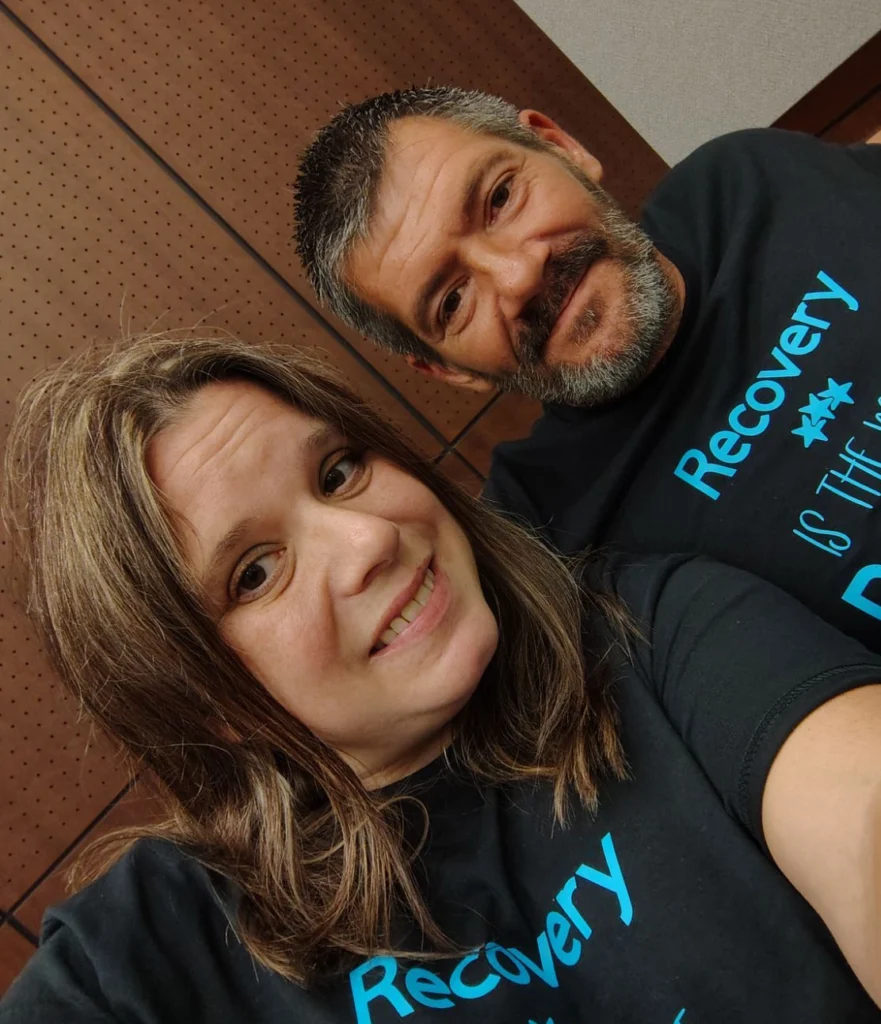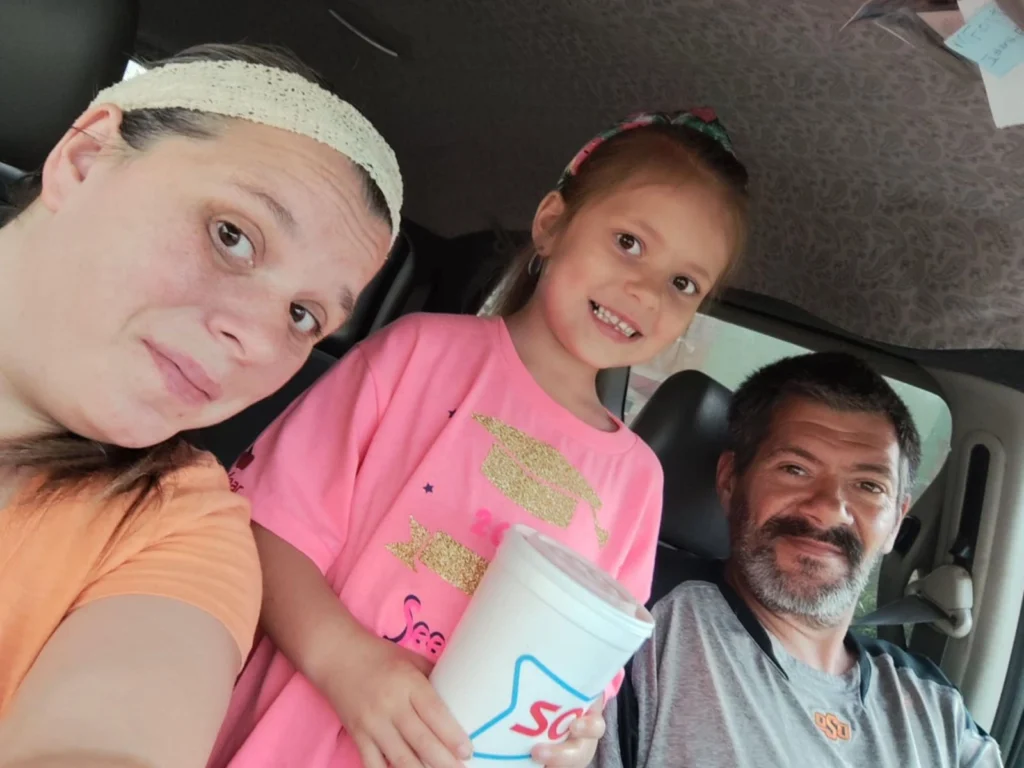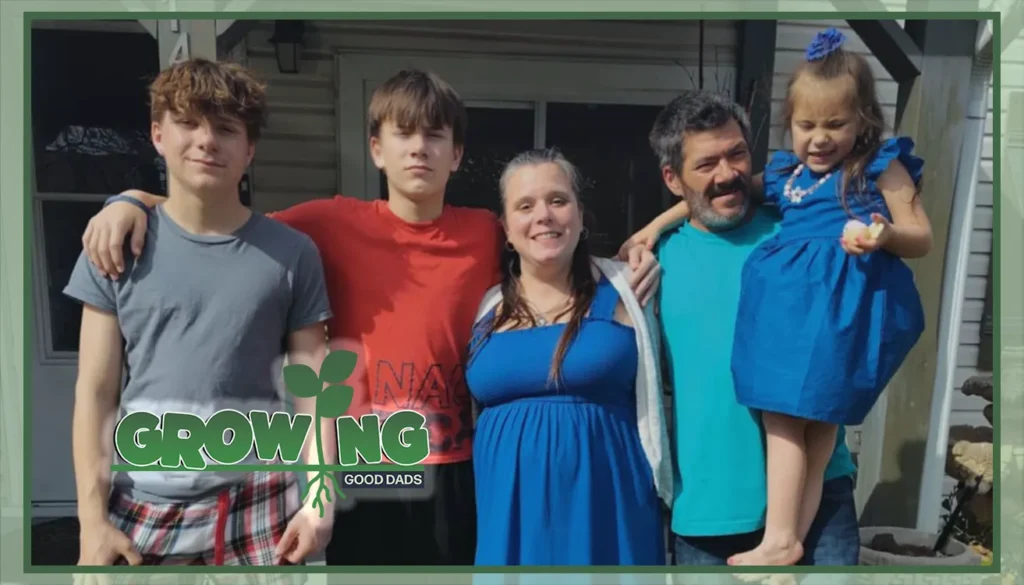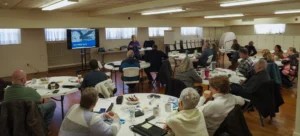This month on the Growing Good Dads blog, we’re diving into preteens. There’s no better place to turn to for advice on raising healthy and happy preteens than a dad who’s successfully done so—twice!
Michael Fisher is father to a 16-year-old, a 13-year-old and a 6-year-old. The three children, Michael Jr, Marcus and Macy, keep Michael’s and his wife Mindy’s hearts and hands full. We think it’s safe to say Michael’s learned a lot over the past few years about how to be a good dad to preteens.
Embracing Your Youngster’s Individuality
It’s no secret that parenting preteens is not a cake walk. But part of being a Good Dad, Michael says, is knowing what makes your children unique. Each kid is different, and leaning into those special personality traits is key, he said.
For example, Junior is outspoken and mouthy at times (but let’s be real, what teenager isn’t?). Marcus, while typically quieter than his older brother, is a real jokester.
Many parents assume that their preteen is starting to drift away, Michael said, but in his experience, this is not always true. He advised dads prioritize spending time with preteens—because children at this age need their parents just as much as they did when they were younger.
“Make sure you value your time with your kids,” Michael recommended. “If you have an extra day (off work) with your family, take it. They grow up fast; enjoy it while you can.”
Just like his sons’ personalities are different, Michael’s favorite ways to spend quality time with his boys is catered to their respective interests—like lifting weights and playing video games together.
One-on-one time is extra special, he said, describing how he and his wife take turns to spend quality time with their children to bond. At the same time, coming together as a family is rewarding, too. Michael said his family’s current obsessions are games like Operation and Jenga. They have the giant Jenga set, and “the kids can’t get enough of it.”

A Happy Reunion
Michael and Mindy have their three kids full-time at their house in the Joplin area, but it wasn’t always this way. The husband and wife previously separated for around five months, and the couple lost their kids in July 2023.
For nine months, the siblings lived with their grandmother and had limited opportunities to see their parents via visitation. It was a scary time, as the children had been with their parents their whole lives.
Meanwhile Michael and Mindy were co-parenting separately while in drug treatment. The family did their best to make it work, but it wasn’t easy. Michael says the couple didn’t reunite until January 2024, and he didn’t get overnight visitation privileges with his children until the following month.
The family has since reunited after drug treatment and parenting classes. Michael describes his relationship with his wife as “healthy” now that they’re back together. They attended couples counseling in addition to Within My Reach, the relationships skills portion of the New Pathways for Good Dads program.
Michael and Mindy just graduated from drug treatment court last Thursday. Michael will celebrate one year of sobriety in August.
“Treatment court helped save my life,” he said.
His kids have told him how proud they are of him.
“After having my kids taken away from me, I value my time with my kids more now,” he said. “(Mindy and I) only had them for three hours on Sundays for four months, (and) you really want those three hours.”
At the beginning of the ordeal, Michael admitted he was not optimistic. He said he “didn’t want to have to deal” with the court system or the Department of Family Services.
He recounted the difficulties he experienced, trying to do everything according to the court’s decision.
“(It’s) really tough when you’re just starting out,” Michael said, “but things are going really good now.”
He later wrote to the court, describing his goals and requests. Eventually he and Mindy were able to move back in together and could attend visitation together, which he described as “a great feeling.”
Michael says he attributes much of his new parenting outlook to the fatherhood and relationships skills classes he took as a participant in the New Pathways for Good Dads program.
“Things are different after going through the recovery process,” he said.
He said he’s learned how to take “new routes” to parenting—and learned how to handle parenting situations differently. The classes gave him new tools and strategies for being a good dad.
Michael is “grateful” for Good Dads’ parenting classes, and he said he’s learned so much about healthy relationships and being a parent.
Starting the day after graduation, Michael and Mindy are looking forward to attending alumni meetings at the Recovery Outreach Community Center to put others in the Joplin area in touch with what they need to succeed.
“It feels really good to be able to share my story and help somebody else out,” Michael said.

Discipline, Emotional Intelligence and Confronting Tough Topics
Preteens are prone to angry outbursts, and they rely on their parents to learn positive outlets for managing their emotions. Sometimes kids get mad—that’s a fact of life, Michael said.
Michael has found success in anticipating what might make his children angry and trying to avoid potentially angering situations. He said when parents make their children angry, it doesn’t do anybody any good, because angry youngsters are not inclined to listen to their parents.
“I try to sit down and talk with them,” Michael said. In turn, his children surprise him with how well they can handle emotion.
He advised giving kids the opportunity to take a break from an angering situation. He suggested dads don’t always pursue—that sometimes it’s better to walk away and try again after taking the chance to cool down.
Using what he’s learned at Good Dads classes, Michael’s tried a variety of strategies, such as removing privileges as a consequence for breaking the rules. Good Dads classes have helped him determine what might be the best solution to a situation and have taught him to handle only what he can control.
In general, his sons have always been easy to talk to, and he describes them as responsible young men. They even help around the house!
But not everything is sunshine and roses. Occasionally, Michael needs to discipline his children. He’s done his best to find fair punishments, enact reasonable consequences and explain his reasoning behind his decisions to his teens.
For example, Michael and Mindy found a vape on the couch one day—and they found more in Junior’s bedroom. Michael said Junior had to “have a talking to.”
He sat his son down and told him the dangers of vaping, but he also realized that he can’t control his son’s decisions. Michael Jr was initially accusatory.
“(He was) pointing fingers at me, saying, ‘You did that!’ But that was me; I made mistakes,” Michael said. He told Michael Jr that he’d rather his son not go down the same path.
Regulating Preteens’ Technology
Both Michael Jr and Marcus have smartphones, but their parents do their best to promote a healthy relationship with those phones. Michael explained his sons are limited to using this technology only during certain times of the day.
He admitted it’s occasionally a problem, citing Marcus’ tendency to stay up all night on his phone. The parents decided their best solution was to require his phone to stay on a charger in the kitchen overnight.
“Treat your kids how you want to be treated,” said Mindy, who was listening to Michael tell Good Dads this story. “Treat them with respect—and expect that in return.”

Fostering Teamwork and Cooperation in Preteens
Michael and Mindy prioritize a household that values teamwork and cooperation, two character traits that Good Dads thinks are critical for preteens to learn.
One way the Fisher teens learn about cooperation is through their respective household responsibilities. Michael said his sons have chores they’re expected to accomplish, such as tidying their bedrooms, cleaning the bathrooms and doing the dishes after dinner.
“Our family is a team, and we work together,” Mindy added.
The boys also have the opportunity to earn an allowance for extra chores around the house, such as lawn work or babysitting little sister Macy.
“Teens are very money motivated,” Michael said. “‘I want an Apple card’ — well, I need my lawn mowed.”
Takeaways
Michael shared his advice to other fathers who want to be Good Dads:
- Be involved in your children’s lives, even when you’re very tired.
- Every dad can benefit from parenting classes.
- Be patient and really listen to your preteens. They want to spend more time with you than you might think.
- Take turns with your partner for household responsibilities—even the little things like cooking dinner.
- Money can’t buy happiness. If you must choose between taking another shift at work and spending the day with your kids, choose family time.





